Latest posts
Bioinformaticians Baking in Blazing Basel: ISMBECCB and BOSC 2019
Scott Edmunds - August 8, 2019
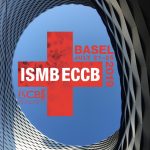
In Sultry Switzerland, Bioinformatics is Radiant at ISMBECCB Regular readers will know GigaScience originally launched at the 2012 ISMB (Intelligent Systems of Molecular Biology) meeting in Long Beach, and every subsequent year the conference has held a special place in our hearts as the place where we celebrate our birthday (see all the previous write-ups […]
iMicrobe: Fostering Community-Driven Science and Data Discovery. Q&A with Bonnie Hurwitz
Nicole Nogoy - August 2, 2019

Author Q&A with Bonnie Hurwitz on the iMicrobe platform for open science and metagenomics, relevant to our FAIR principles and reproducible research.
FUNC in the Fjords: Functional Metagenomics 2019 in Trondheim
Nicole Nogoy - July 27, 2019
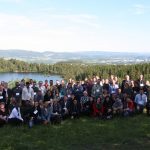
The Norwegian city of Trondheim seemed the place to be this June – with hotels in high demand due to the BarCode Of Life conference, The Big Challenge Science Festival (including a concert by that famous science communicator Sting), and the Functional Metagenomics 2019 conference (#FMG2019) all taking place over the same period (June 16-19th). […]
Genomic Warning Flag Just in Time for Beach Season: Jellyfish Toxins
Nicole Nogoy - July 4, 2019
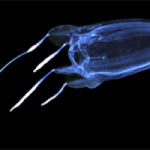
Three jellyfish genomes are better than one A new article in GigaScience might make you squirm if you plan to hit the beach this summer. The published work presents the draft genomes of three different jellyfish species. The international group of researchers, lead by Joseph Ryan (University of Florida), chose to examine jellyfish that present a […]
PAG Asia 2019: Plant and Animal Genomes (with Chinese Characteristics)
Chris Armit - July 3, 2019
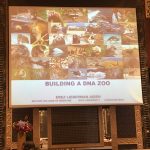
Regular readers will know GigaScience has published a lot of plant and animal genomes, and the biggest conference for this research community is the appropriately named Plant & Animal Genome Conference (PAG). We’ve attended a number of these giant meetings at their San Diego base, and in recent years they have been branching out to […]
Power to the People and Their Data – The Open Humans Way. Q&A with Bastian Greshake Tzovaras and Mad Price Ball
Nicole Nogoy - June 27, 2019

Read more about Open Humans from Bastian Greshake Tzovaras & Mad Price Ball, a community-based data sharing platform for ethical participant led research.
GigaBlog meets Gigantum: Guest Post from Tyler Whitehouse, Dean Kleissas and Dav Clark
Nicole Nogoy - June 20, 2019

At GigaScience as our focus is on reproducibility rather than subjective impact, it can be challenging at times to judge this in our papers. Targeting the “bleeding edge” of data-driven research, more and more of our papers utilise technologies, such as Jupyter notebooks, Virtual Machines, and Containers such as Docker. Working these tools in to […]
Genomics Standards on the Danube. GigaScience at GSC21 in Vienna
Chris Armit - June 3, 2019
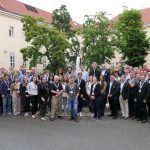
The 21st meeting of the Genomics Standards Consortium (GSC21) took place last week in Vienna at one of the oldest universities in the world – the University of Vienna – from May 20th-23rd. We’ve been long time supporters and participants of the Genomics Standards Consortium meetings going back to 2012’s GSC13 in Shenzhen, and have […]
And the winner is…volume 2. ICG13 prize winners on GigaTV
Scott Edmunds - May 21, 2019
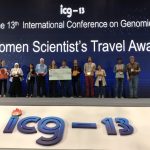
Just out in GigaScience is a new paper presenting Rice Galaxy, an open resource for plant science using the Galaxy workflow management system we are so fond of. The authors from the International Rice Research Institute in the Phillipines are winners of our 2018 ICG13 Prize, and as this is the final paper to be […]
Mock the Metagenome. Author Q&A with Nick Loman & Sam Nicholls
Scott Edmunds - May 15, 2019

The mock metagenome, MAGs and breaking the first rule of Long Read Club Out today in GigaScience is a new “mock metagenome” Data Note from the Nick Loman lab in Birmingham showcasing the latest long-read sequencing technologies from Oxford Nanopore. Having published the first nanopore E. coli genome with us in 2014 showcasing the then […]